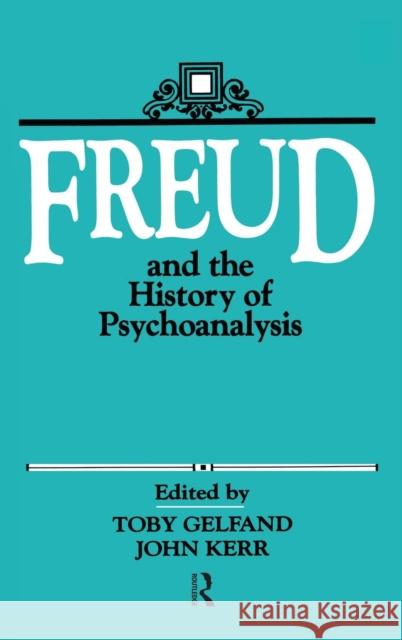Freud and the History of Psychoanalysis » książka
Freud and the History of Psychoanalysis
ISBN-13: 9780881631364 / Angielski / Twarda / 1992 / 398 str.
Freud and the History of Psychoanalysis
ISBN-13: 9780881631364 / Angielski / Twarda / 1992 / 398 str.
(netto: 289,15 VAT: 5%)
Najniższa cena z 30 dni: 299,90
ok. 22 dni roboczych.
Darmowa dostawa!
The recent upsurge of fresh historical research concerning the early years of psychoanalysis has left many professional readers struggling to keep abreast of the latest findings and more than a little perplexed as to what it all adds up to. Freud and the History of Psychoanalysis addresses this state of affairs by providing in a single volume original essays by fourteen leading historians of psychoanalysis and philosophers of science; it is the most impressive collection of contemporary Freud scholarship yet to appear in print. The contributions span virtually the entirety of Freud's career, from his coming of professional age in Charcot's Paris to his clandestine rendesvous in the Harz Mountains with members of "The Committee" more than 30 years later. The collection also encompasses a host of conceptual issues, ranging from Freud's theory of dream formation to the impact of his conflicting masculine and feminine identifications on his attitude toward treatment. Beyond providing an invaluable overview of Freud's life and times, the volume will challenge readers to deeper reflection on a host of critical episodes and issues that have shaped the special character of the psychoanalytic endeavor. Indispensable as a reference work, Freud and the History of Psychoanalysis constitutes a rewarding and accesible introduction to rigorous historical research. It will be prozed by all who care deeply about the past and future of psychoanalytic theory.
The recent upsurge of fresh historical research concerning the early years of psychoanalysis has left many professional readers struggling to keep abreast of the latest findings and more than a little perplexed as to what it all adds up to. Freud and the History of Psychoanalysis addresses this state of affairs by providing in a single volume original essays by fourteen leading historians of psychoanalysis and philosophers of science; it is the most impressive collection of contemporary Freud scholarship yet to appear in print.
The contributions span virtually the entirety of Freud's career, from his coming of professional age in Charcot's Paris to his clandestine rendesvous in the Harz Mountains with members of "The Committee" more than 30 years later. The collection also encompasses a host of conceptual issues, ranging from Freud's theory of dream formation to the impact of his conflicting masculine and feminine identifications on his attitude toward treatment.
Beyond providing an invaluable overview of Freud's life and times, the volume will challenge readers to deeper reflection on a host of critical episodes and issues that have shaped the special character of the psychoanalytic endeavor. Indispensable as a reference work, Freud and the History of Psychoanalysis constitutes a rewarding and accesible introduction to rigorous historical research. It will be prozed by all who care deeply about the past and future of psychoanalytic theory.











